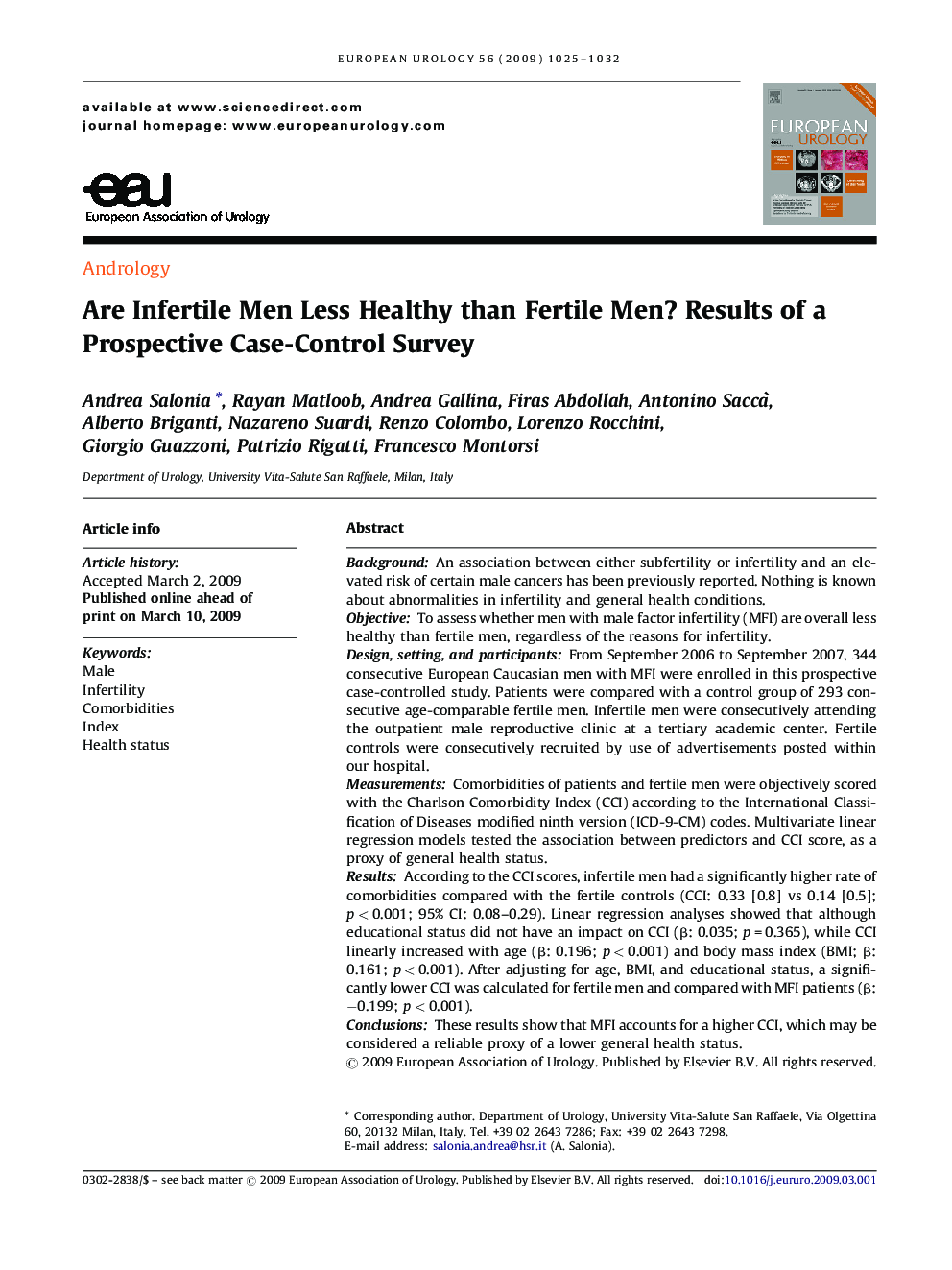| کد مقاله | کد نشریه | سال انتشار | مقاله انگلیسی | نسخه تمام متن |
|---|---|---|---|---|
| 3924644 | 1253109 | 2009 | 8 صفحه PDF | دانلود رایگان |

BackgroundAn association between either subfertility or infertility and an elevated risk of certain male cancers has been previously reported. Nothing is known about abnormalities in infertility and general health conditions.ObjectiveTo assess whether men with male factor infertility (MFI) are overall less healthy than fertile men, regardless of the reasons for infertility.Design, setting, and participantsFrom September 2006 to September 2007, 344 consecutive European Caucasian men with MFI were enrolled in this prospective case-controlled study. Patients were compared with a control group of 293 consecutive age-comparable fertile men. Infertile men were consecutively attending the outpatient male reproductive clinic at a tertiary academic center. Fertile controls were consecutively recruited by use of advertisements posted within our hospital.MeasurementsComorbidities of patients and fertile men were objectively scored with the Charlson Comorbidity Index (CCI) according to the International Classification of Diseases modified ninth version (ICD-9-CM) codes. Multivariate linear regression models tested the association between predictors and CCI score, as a proxy of general health status.ResultsAccording to the CCI scores, infertile men had a significantly higher rate of comorbidities compared with the fertile controls (CCI: 0.33 [0.8] vs 0.14 [0.5]; p < 0.001; 95% CI: 0.08–0.29). Linear regression analyses showed that although educational status did not have an impact on CCI (β: 0.035; p = 0.365), while CCI linearly increased with age (β: 0.196; p < 0.001) and body mass index (BMI; β: 0.161; p < 0.001). After adjusting for age, BMI, and educational status, a significantly lower CCI was calculated for fertile men and compared with MFI patients (β: −0.199; p < 0.001).ConclusionsThese results show that MFI accounts for a higher CCI, which may be considered a reliable proxy of a lower general health status.
Journal: European Urology - Volume 56, Issue 6, December 2009, Pages 1025–1032